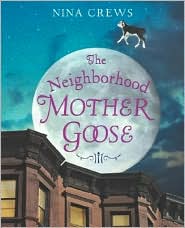| KellyGToGo My goal this year: my students will write at least four times more than I can physically grade. They need more practice, not more grading. 8/30/11 6:43 PM |
This quote got me thinking...
Jumping into third grade this year after a small hop in literacy support and a long-ish run in second grade has been exciting and...crazy! Switching grade levels was not as easy as I thought. Encountering new standards along with new goals for a new year after much reflection is exhilarating/exciting/overwhelming/will I make it through the year?!
One goal I have for my students is to get them writing, writing, writing. I read this summer on twitter from @pamallyn "reading is breathing in, writing is breathing out." I hope we breathe in or read voraciously this year and breathe out with just as much enthusiasm and energy. My goal is for kids to realize that their words hold value, have importance and can change lives.
I've always loved writer's workshop and will continue to use this model to teach, write and share our work but I have some new goals to get us writing even more beyond our daily workshop time.
1. Blogging - I will try blogging with kids this year for the very first time. I'm hoping that having an authentic audience will get writers excited and motivated to share information and stories from their lives beyond our classroom walls.
2. Writing about reading. I always have kids write their thinking in reader's notebooks but I want to build in more time to share these important "thinking tracks" or evidence of where their brains have been. I want to model more of how readers show evidence of what is happening inside their brains as they read to remember, understand, and extend meaning.
3. Wonder Block - using wonderopolis.org, I want to get kids wondering, researching, and recording and sharing important/interesting facts from nonfiction
4. Meaningful morning work - Every day will begin with a message on the smartboard and each message will end with a question for students to respond to in writing. I'm hoping these will be questions that will get us thinking, talking (and writing!) more
5. Mathematical writing - I say every year I will have students write more about how they solve problems but I really mean it this year!!
6. Discuss together how students can show endurance in writing, and continue on even when it's hard or they don't know what to say, or how to say it
7. Highlighting "golden lines" from authors that inspire us as authors. I want to post these lines we want to remember to revisit author's craft.
Through all of these goals I want to instill a love for language, for words and for how writers can change the world around them, and the way others think with what they have to say.



